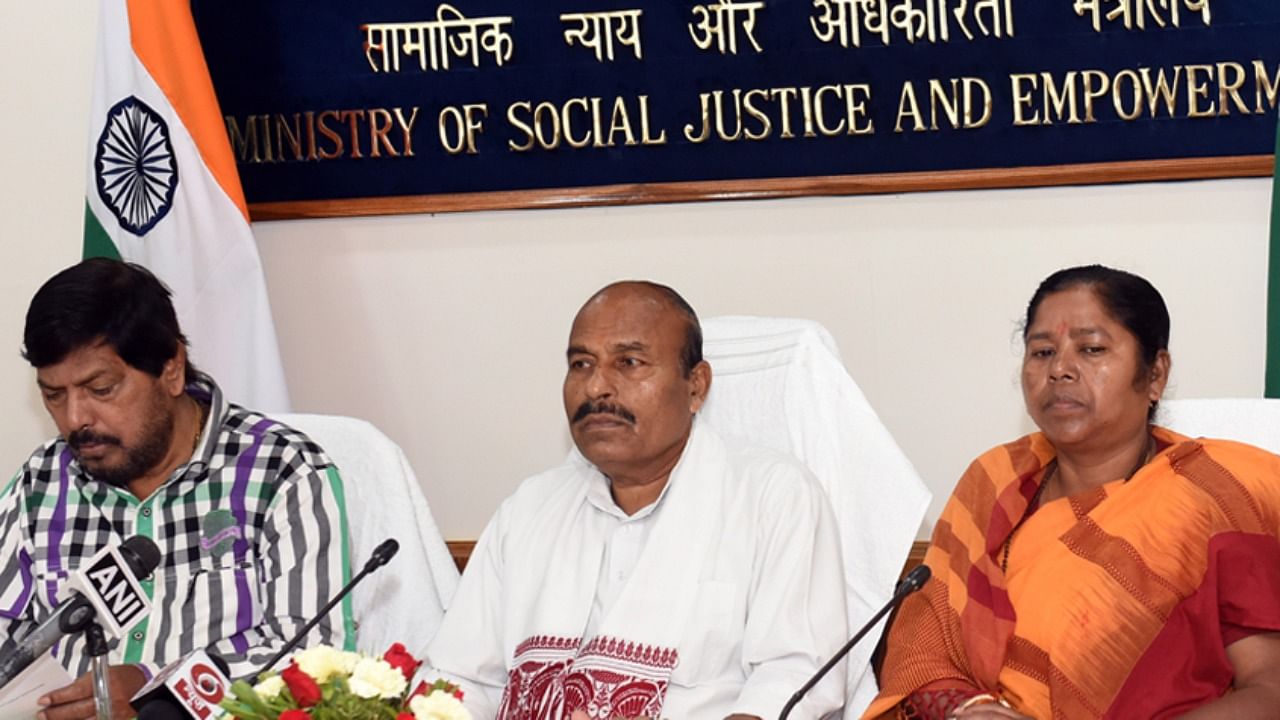
From limiting coverage of pre-matric scholarship for OBC students to setting up a commission to examine the matter of giving Scheduled Caste status to religious converts who were 'historically' SCs, the Social Justice and Empowerment Ministry remained in spotlight this year.
The ministry evoked critical reactions from various quarters over its decision to limit its pre-matric scholarship scheme meant for OBC and minority communities to students of classes 9 and 10.
Earlier, the pre-matric scholarship used to cover education for grades 1 to 8 as well for students belonging to minority communities.
The ministry also appointed a commission headed by former CJI K G Balakrishnan to examine the matter of giving Scheduled Caste status to new people who claim to "historically" have belonged to the SCs, but have converted to a religion other than those mentioned in the presidential orders.
Accessibility remains a major challenge for the physically challenged in India even this year. The Rights of Persons with Disabilities Act, 2016 provided a timeline of five years for making all existing public buildings accessible by June 14, but out of the total 2,839 buildings, 585 state buildings and 1,030 central government buildings have been made barrier-free for the disabled.
For the visually impaired population, 500 academic words in Indian sign language were launched this year which are being used at the secondary level, which are often used in history, science, political science, mathematics.
An ISL dictionary app called Sign Learn was launched which is available in both Android and iOS versions. Indian Sign Language Research And Training Centre had signed an MoU with National Council of Educational Research and Training (NCERT) for converting NCERT textbooks from Class 1 to 12 into Indian Sign Language (digital format) to make the textbooks accessible to children with hearing disabilities. This year, ISL e-content of NCERT textbooks of class 6 was launched.
The Department of People with Disabilities also signed an agreement with Amazon and Flipkart to create a structured skill development mechanism for mainstreaming of PwDs into the mainstream economy.
Some initiatives of the ministry did not take off at the expected rate like the government's employment platform for the elderly, Senior Able Citizens for Re-Employment in Dignity (SACRED), which the former secretary of the ministry admitted publicly has not been functioning "very well".
Also, the Sugamya Bharat app which aims to enable people with disabilities and the elderly to register accessibility-related problems in buildings, in modes of transport, or any infrastructure by uploading pictures on it has been receiving complaints but they are not being addressed by the states.
According to an RTI filed by PTI, around half of the complaints were pending resolutions till August with states and Union territories.
There were a total of 1,009 complaints received through the app till August and 509 complaints were pending resolution at the state/Union territories authorities concerned, the Department of Disabilities said in its RTI response.
Deaths of sanitation workers in accidents while cleaning sewers and septic tanks continued to be a concern for the ministry even this year.
According to data shared by the ministry in Parliament, 48 such deaths were recorded in 2022.
The government formulated National Action Plan for Mechanized Sanitation Ecosystem - NAMASTE scheme to achieve zero sanitation fatalities in India and to ensure that all sanitation work is undertaken by skilled workers.
The National Commission for Backward Classes got its new chairperson this year. Hansraj Gangaram Ahir assumed the post earlier this month.